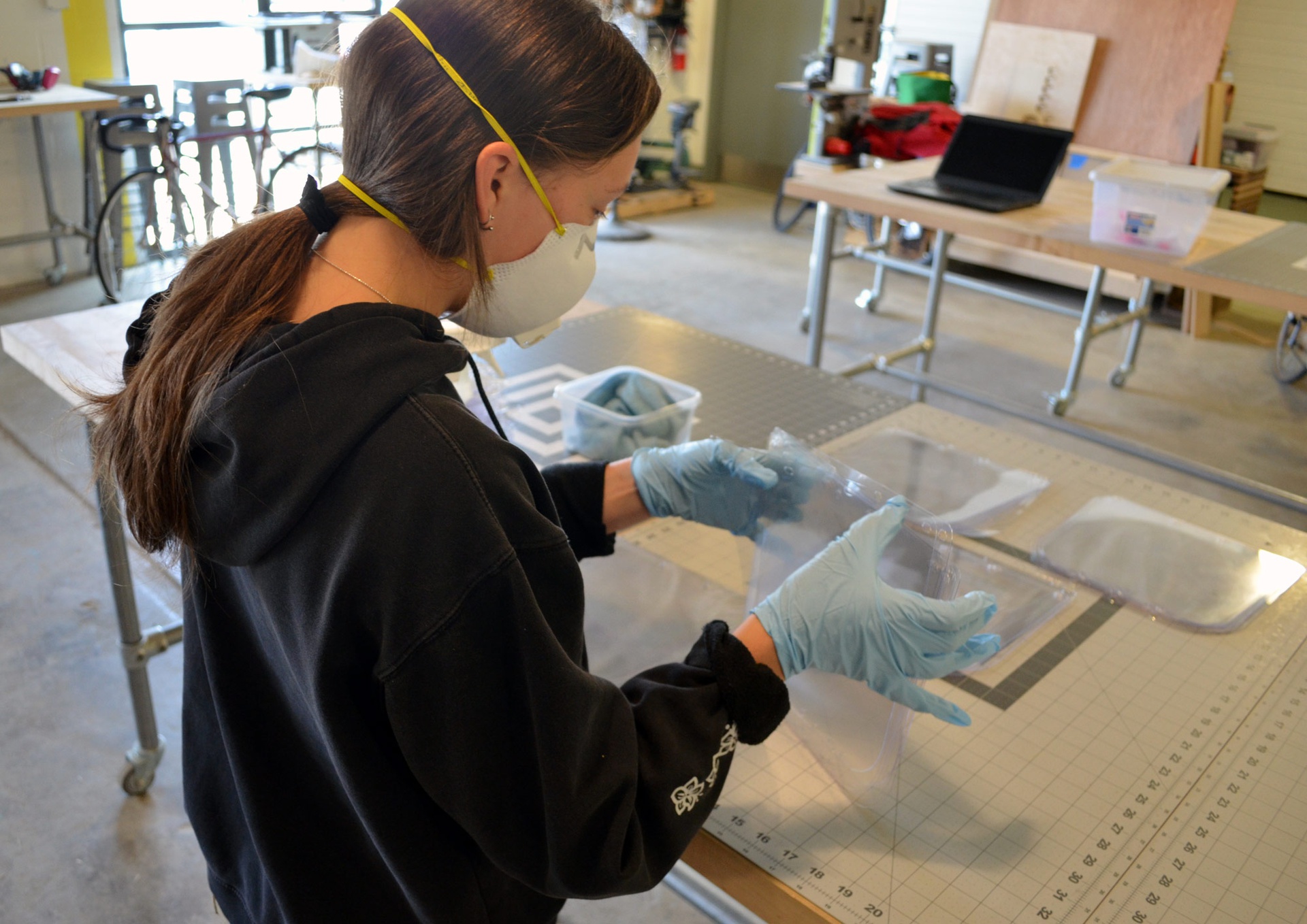Pitt’s Manufacturing Assistance Center Partners with PPE Connect PGH to Manufacture Face Shields
PITTSBURGH (April 15, 2020) — The shortage of personal protective equipment (PPE) has launched makerspaces onto the front lines for PPE production. Makerspaces across the country are stepping up with 3D-printed or laser-cut face shields to help fill the gaps in the supply of PPE as hospitals and clinics fight the coronavirus.
The University of Pittsburgh Swanson School of Engineering’s Manufacturing Assistance Center (MAC) Makerspace in Homewood is no exception. The Makerspace is partnering with PPE Connect PGH, a local initiative that seeks to connect donated or locally manufactured PPE with the healthcare providers who need it, to produce as many as a few hundred 3D-printed face shields each day.
“The opportunity to use our privilege to support our community, healthcare system, and planet through manufacturing aligns exactly with the MAC’s mission. Makerspaces, especially those that are part of educational institutions, foster communities of creative problem solvers who are continuously seeking new ideas to solve our world’s biggest problems,” said Caleb Ashcraft, supervisor at the MAC Makerspace. “So, when something as devastating and universal as this situation arose, there’s no surprise that the Maker community was one of the first responders.”
The MAC Makerspace is among several partners in Pittsburgh working with PPE Connect PGH to produce face shields. PPE Connect PGH was founded by Alejandro Sklar and Pitt alumnus Davit Davitian to help address the PPE shortage in Pittsburgh. Sklar has been active in the start-up manufacturing community in Pittsburgh and realized the role he could play in addressing the PPE shortage.
“I was part of a lot of conversations with others in the start-up community about how we can help connect the already-produced PPE that people wanted to donate with the facilities that could use them. I believe if you’re in a position to help, you help,” explains Sklar. “We started taking donations and requests on our website, and the initiative grew from there.”
The company’s website accepts donations of items like N95 masks, surgical masks, goggles, isolation gowns, and nitrile gloves. (Learn more about donations here.) It also allows medical facilities to submit requests for needed items.
PPE Connect PGH found that many medical practitioners were eager to receive face shields as well as the hard-to-acquire masks. Because facilities are told they need to start reusing respirator masks rather than getting a new one before each patient is seen, face shields are a second line of defense that can help stop airborne particles from reaching the mask, protecting the wearer and prolonging the life of the respirators. The company began partnering with makerspaces and small manufacturers in the city to create and produce the shields, which are quicker and easier to produce than respirator masks.
Pitt’s MAC Makerspace is one of several partners in the area working to ramp up production and meet the initial demand for face shields. At the MAC Makerspace, the team is using an 80W laser cutter to create the shields, but other partners are also 3D-printing shield parts.
“The entire global makerspace community has contributed to the design and execution of these shields, as we share a lot of the same style of equipment,” explained Ashcraft. “If there are issues, or best practice improvements, the news spreads fast across Pittsburgh.”
The collaboration is but one example the Swanson School’s efforts to help with the PPE shortage. The Pitt Makerspace, part of the undergraduate program, created an open-source face shield that is available for anyone to download and create with a die- or laser-cutter and a single sheet of clear plastic material; they, too, are working with local partners to produce as many shields as they can. Götz Veser, PhD, professor of chemical and petroleum engineering, and graduate student researcher Nasser al Azri, have produced over 100 gallons of hand sanitizer in their lab from donated materials. Researchers from every department at the Swanson School were able to donate a combined five pallets of PPE and sanitizing equipment from their labs; the University of Pittsburgh has implemented a university-wide process to handle the growing number of donations coming from across the Pitt community.
“Who we are as a university and a city is a special player in all of this. Within the technology boom rapidly growing, there is the seed of creativity and grit that has defined Pittsburgh. This opportunity to partner with other public organizations, makerspaces, and universities on behalf of the Swanson School is a demonstration of what can be accomplished when we leverage our resources and work together,” said Ashcraft. “There has never been a situation such as this, and we are figuring this out as we go, but when it’s all said and done, there will remain a blueprint for how universities and the public can work together to solves our world’s most consequential problems.”
Contact: Maggie Pavlick

